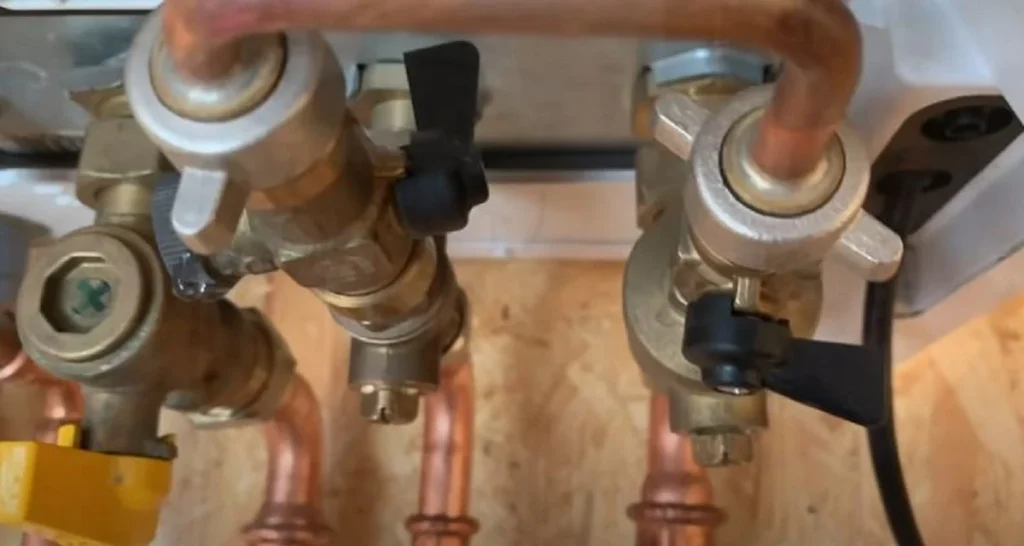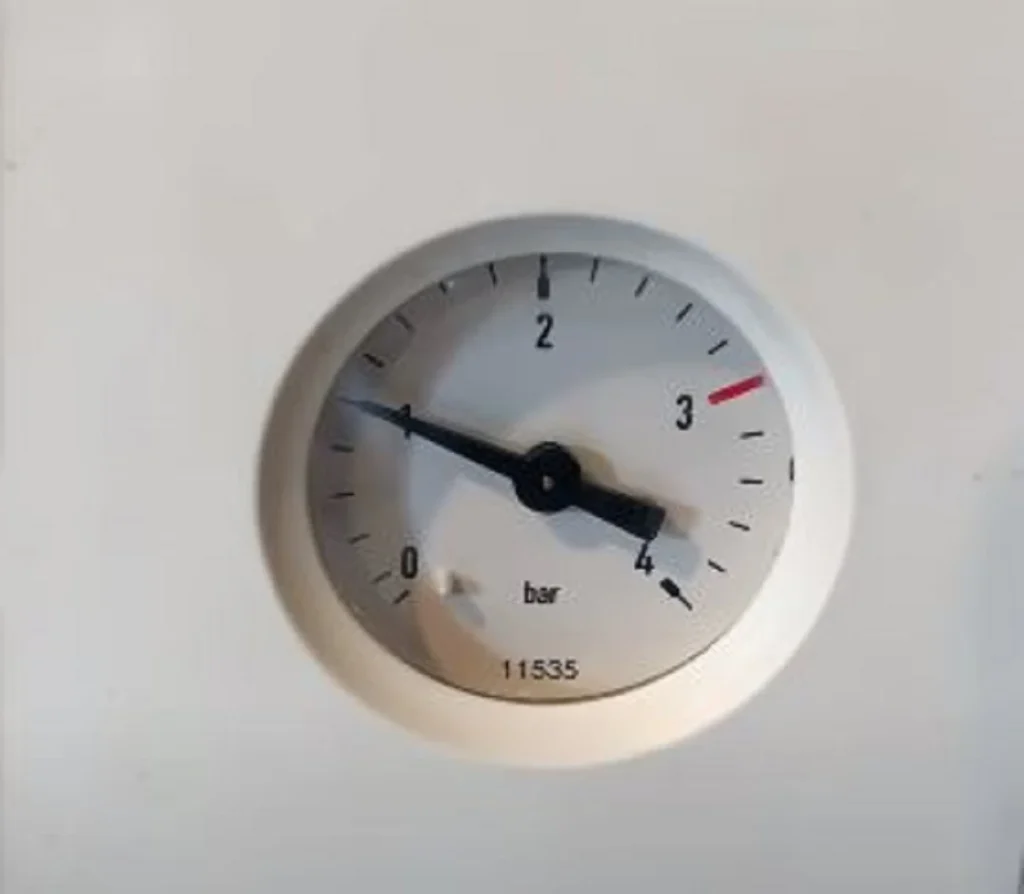| Note: This article may contain affiliate links, which means if you make a purchase following our links won’t cost you extra, but we may earn a commission. Learn more |
Boiler pressure is too high and leaking can signal a serious issue with your heating system. This condition often indicates that the pressure relief valve is working hard to manage the excess pressure.
If you notice your boiler’s pressure is too high and water is leaking, immediate action is necessary to prevent potential damage.
High boiler pressure can lead to various problems, including leaks and damage to the boiler itself. Common reasons for increased pressure include trapped air in the system, a faulty expansion vessel, or a malfunctioning pressure relief valve.
When the boiler pressure rises to around 3 bar, it’s a sign that professional assistance might be needed. While high pressure in itself isn’t typically dangerous due to the presence of a pressure relief valve, it can cause leaks and stress on the system.
For combi boilers, the ideal pressure gauge reading is between 1 and 1.5 bars. Residential steam boilers, which are usually low-pressure systems, operate around 0.2 to 0.5 psi. If the pressure is higher, it might be due to too much water in the system, often a result of recent repressurization. A continuous cycle of pressure build-up and drop indicates an underlying issue that needs addressing.
To reduce high boiler pressure, try bleeding the radiators or draining excess water through the drain valve. This can relieve the pressure and stop the leaking. However, if these methods don’t work or the issue recurs, it’s essential to consult a professional.
Persistent high pressure can lead to cracks and breaks in the boiler’s valves and pipework, potentially causing hazardous situations if the relief valve is faulty or jammed.
Read Also: Hot Water Boiler Pressure Too High or Too Low? Fix Now
Boiler Pressure and Its Significance
Boiler pressure refers to the amount of pressure of the water circulating in your heating system. It is crucial for the efficient operation of your boiler. Too low or too high pressure can lead to inefficiencies or damage.
The pressure is measured in bars, with most home boilers operating efficiently between 1 and 1.5 bars. Reading the pressure gauge on your boiler is straightforward. The gauge usually has a green zone indicating the optimal pressure range.
If the needle lies within this zone, your boiler pressure is normal. If it’s below or above, it may indicate an issue.

Risks of Excessive Boiler Pressure
Excessive boiler pressure can pose several risks to your heating system. If the pressure in your boiler climbs too high, it can strain your boiler’s components, leading to potential leaks or even system breakdowns.
Over time, this can significantly shorten the lifespan of your boiler. The increased pressure can also result in inefficient heating and increased energy costs.
To mitigate these risks, it’s essential to regularly monitor the boiler pressure and take action if it consistently reads higher than the recommended level.
Is High Hot Water Boiler Pressure Dangerous?
While high pressure in a hot water boiler isn’t typically dangerous, it shouldn’t be ignored. A significantly high pressure can lead to system malfunctions and, in rare cases, cause the boiler to shut down as a safety measure.
However, the most common danger of high boiler pressure is the potential damage to the boiler system and associated pipework, which can lead to leaks and inefficient operation.
6 Reasons for Boiler Pressure Too High and Leaking, and How to Fix Them
Boiler pressure issues can be complex and varied. Below are six common reasons for high boiler pressure and leaking, each with its unique causes and solutions.
1. Faulty Pressure Relief Valve
A pressure relief valve is designed to release excess pressure. If it’s faulty, pressure can build up, leading to leaks.
The fix involves checking the valve for blockages or damage. If it’s blocked, cleaning it might resolve the issue.
However, if the valve is damaged, replacement by a professional is the safest option.
2. Overfilled Boiler System
An overfilled system can cause high pressure and leaks. This often occurs after repressurizing the boiler.
To fix this, turn off the boiler and let it cool. Then, drain water from the system until the pressure gauge reads within the normal range (usually around 1-1.5 bars).
3. Faulty Expansion Vessel
The expansion vessel compensates for water expansion when heated. If it’s malfunctioning, pressure can’t be regulated, leading to high pressure and leaks.
Resolving this requires checking the vessel’s pressure and recharging it if necessary. If the vessel is damaged, it will need to be replaced.
4. Trapped Air in the System
Air trapped in the heating system can increase pressure. Bleeding the radiators is a simple solution.
Turn off the heating, and use a radiator key to open the bleed valve. Once water starts coming out instead of air, close the valve. This should bring the pressure back to normal.
5. Malfunctioning Pressure Gauge
Sometimes, the issue is with the pressure gauge itself, showing a false high reading.
To diagnose, check other indicators of high pressure like leaking or noisy pipes. If these signs are absent, the gauge might need replacing.
It’s advisable to have a professional assess and replace the gauge.
6. Blockages or Leaks in the System
Blockages in the system can cause pressure build-up, while leaks can lead to loss of pressure and then the system overcompensating.
Regular maintenance, including flushing the system to remove debris and checking for leaks, can prevent these issues.
For existing problems, a heating engineer can identify and fix blockages or leaks.

- Read Also: 3 Best Combi Boilers Reviewed
